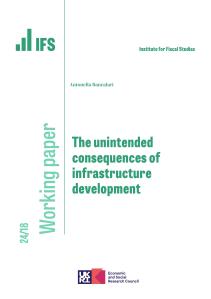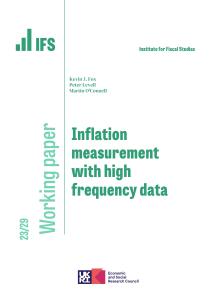- Public sector borrowing in January was minus £2.9bn - i.e. a surplus. This is similar to the £3.5bn surplus forecast for January by the OBR in October. January is usually a month of surplus for the public sector due to receipts of self-assessment and PAYE income tax on any bonuses paid in that month. But prior to the pandemic surpluses were bigger: in January 2020 it was £9.9bn.
- High inflation is continuing to push up government debt interest spending via its impact on the cost of servicing inflation-linked debt. Over the second half of the financial year, debt interest spending is set to exceed the October Budget forecast by £11 billion, or 40%.
- Wider central government spending, too, is exceeding the Budget forecast, by £10 billion or 1% over the first ten months of the financial year.
- But, with high inflation, low unemployment and strong self-assessment income tax revenues in January, central government revenues are exceeding the October Budget forecast by more - £27 billion or 4% in the year-to-January. As a result, borrowing on a 12-month rolling basis is continuing to fall faster than forecast back in October.
Isabel Stockton, a research economist at the Institute for Fiscal Studies, said:
"Today's figures suggest that borrowing remains likely to come in below that forecast in the Budget. This will doubtless be good news for the Chancellor as he prepares for next month's Spring Statement. But borrowing still remains high by historical standards and while he is currently meeting his fiscal targets Mr Sunak has left himself with very little wriggle room."
"Some have suggested that lower-than-expected borrowing figures should lead the Chancellor to provide more support to households, on top of that announced earlier this month, to cope with the fast-increasing cost of living. In truth, the latter has little to do with the former. The Chancellor could certainly delay tax rises, uprate benefits with a more up-to-date measure of inflation in April, or implement further one-off support. However, tax rises were introduced to tackle long-run challenges, notably in health and social care, which have in no way become less pressing. If the Chancellor decides to delay tax rises this spring, he will need to find ways to commit credibly to other ways of dealing with these spending pressures."
NEW: Government borrowing on a 12-month rolling basis continues to fall from its record high of 15%, according to data released today by the @ONS. But at 8.1%, it is still closer to its previous peak during the financial crisis in 2010 than to long-run averages. pic.twitter.com/5szdxA0kbW
— Institute for Fiscal Studies (@TheIFS) February 22, 2022









